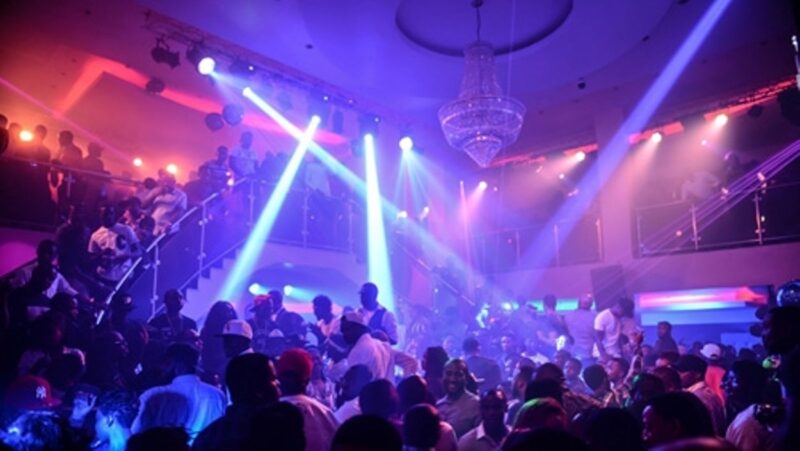Night clubs are part of modern entertainment, offering a space for socialisation, self-expression and fun. For many young women, night clubbing is a rite of passage, a way to let loose and enjoy themselves with friends. However, beneath the surface of flashing lights and pulsating music lies a complex web of risks with far-reaching consequences; BLESSING OKOLA writes.
The allure
Night clubs offer a space for fun seekers to express themselves and enjoy their social freedom without inhibitions. Clubs provide a platform for socialising, meeting new friends and people, forming connections with others who share similar interests. The bubbly dexterity of DJs, performances and themed nights create an electrifying atmosphere that draws many young women to night clubs.
For some, they represent a rite of passage into adulthood, a chance to let loose after demanding work for weeks. But beneath the strobe lights and pulsating beats lies a more complex story -one filled with risks, survival strategies, and social consequences. For women, night clubbing is even riskier.
Friday nights in Wuse 2, the neon lights flicker and the sound of booming music spills into the streets. For many young women in Abuja, this is the start of a ritual that mixes fun, freedom and danger.
Vivian Agba, age 26 years old, a regular night clubber, described the experience as “a way to unwind, bond with friends, laugh, and escape the pressure of work and family.” Yet, she admits that nightlife is far from safe.
She admitted: “Harassment and assault are common. Women are targets of unwanted advances, physical and sexual assaults in clubs. Another danger is spiking of drinks – having alcohol or drugs secretly added to your drink leave you vulnerable. And then there’s theft – phones, handbags, and valuables are easily stolen in crowded places.”
Her fears are echoed by other regulars. In the chaos of a packed dance floor, predators blend in. Many women recount experiences of strangers pressing against them inappropriately or slipping drugs into drinks.
Despite those dangers, Vivian said the thrill of the night and the comfort of friendship, keep her coming back.
“After stressful weeks, clubbing feels like a relief. I can’t completely avoid it, but I take precautions to minimise the risks,” she added.
While some women enter night clubs purely for leisure, others are pulled in by necessity; however, clubbing is more than just an escape. It is survival.
Miss Aisha who lives in Gwarinpa shared her journey saying she moved to Abuja in search of better opportunities but struggled to find stable work.
“I came hoping to get a good job to take care of myself and support my mother and siblings in the village.
“But the job wasn’t forthcoming. My roommate and I started going to night clubs where rich men paid us to have fun with them. That was the beginning of everything,” she said.
What started as occasional fun quickly became a lifeline.
“I have been able to provide for my family through this means. My younger brother in the university is sponsored by me. I’ve even started a small business,” Aisha explained, adding, “But I know it’s risky, and I’m planning to stop soon.”
Her story highlights the dual reality of night clubbing for women: it can be both empowerment and entrapment. While she has gained financial independence, she has also been exposed to dangers ranging from violence to sexually transmitted infections.
Parents, experts caution
Beyond personal risks, women who frequently go to night clubs face harsh social judgments. The perception of clubs as dens of immorality often stigmatises female clubbers.
Speaking with Mrs. Orike Ochigbo, a businesswoman from Utako, strongly disapproves of clubbing for women.
According to her, night clubs have turned into breeding grounds for harassment, assault, and exploitation. She said the prevalence of drugs and alcohol in some clubs can lead to substance abuse, addiction and other health problems.
The perception of night clubs as dens for hedonism and debauchery can lead to social stigma and reputational damage for young women who frequent them.
Navigating the night, she noted, young women can take steps to minimise risks by being aware of their surroundings, setting boundaries and having a plan in place for emergencies. She emphasised that regardless of the circumstances, she would never allow her daughters to engage in night clubbing.
She said the stigma extends beyond families. Women who club regularly often find their reputations questioned in workplaces, relationships, and even religious spaces.
“A man can club and be called social. A woman does the same and she is called irresponsible,” she pointed out the double standards,” she sid.
She pointed out that some parents inadvertently contribute to their daughters’ involvement in prostitution or night clubbing by being overly eager for financial gain or by failing to provide proper guidance.
She warned that if caution is not exercised, the risks associated with prostitution and night clubbing, including the spread of unknown diseases and sicknesses, can have severe consequences. She stressed the importance of vigilance and responsible parenting to prevent such outcomes.
For many young women, the club is more than a dance floor – it is a stage. It is where they express themselves, dress boldly, and shed the constraints of daytime expectations.
Miss Charity, a former prostitute and night clubber, has turned her life around after realising the risks outweighed the benefits. She cited the lack of financial stability as the reason she initially got involved in the industry. Now, she’s seeking ₦50,000 to start a soft drinks business, determined to leave her past life behind.
Charity wants to escape the risks associated with prostitution and nightclubbing, including health risks and potential violence. She noted that with funding, she can move forward with her business plan, but she’ll need to navigate the challenges of entrepreneurship in Nigeria. For her and many others, the club offers what daily routines deny: a sense of liberation.
Music fuels this experience. International DJs, Afrobeat artists, and themed nights turn ordinary weekends into electric spectacles. “When you’re on the dance floor, it feels like nothing else matters,” she said, her eyes lighting up. It’s freedom,” she said.
But the pull of the night is not only about fun; it is about belonging. Clubs serve as social hubs where friendships form and where networking – sometimes in unexpected ways – happens. Peer influence also plays a role; if friends go out, the pressure to join is high.
Dr. Chinyere Nwachukwu of Omega Home Health Services Inc., said economic hardship pushes many women to engage in transactional relationships within nightlife spaces. Clubs become marketplaces where beauty and charm are commodities.
“It reflects deeper structural issues – unemployment, gender inequality, and lack of social safety nets,” she said. Despite the risks, women continue to club – and many have developed survival strategies. According to her, technology has also plays a role. Some women use ride-hailing apps with safety tracking features, while others share live locations with trusted friends throughout the night.
She said the allure of nightlife persists because it embodies both risk and reward. For some women, it is a place of release and bonding while to others, it has been a lifeline. In other words, despite its dangers, it remains a symbol of moral decline and risk.
“What unites these perspectives is the recognition that nightlife is a powerful force; one that shapes lives, identities, and communities. Its challenges cannot be erased by warnings alone; they require holistic solutions that address economic realities, gender dynamics, and social attitudes,” she said.
A psychologist, Dr. Funmi Adeyemi, who specialises in health, safety and psychology, said the psychological dimension of nightlife cannot be ignored. She said for many women, clubs are escape mechanisms.
“Clubbing provides temporary relief from stress, loneliness or trauma. The music and energy create an altered state of mind,” she said, adding that, “but when it becomes habitual, it can mask deeper emotional issues.”
Physical risks
Adeyemi said aside from alcohol poisoning and drug exposure, frequent late nights disrupt sleep patterns and weaken the immune system. According to her, noise levels in clubs also contribute to hearing loss over time.
She argued that responsibility should not rest solely on women. “Night clubs must enforce stricter security, install cameras, and have zero-tolerance policies on harassment. The night is both a risk and a refuge – an arena where freedom, fun, and danger exist side by side.
“The dangers – from harassment to drug exposure and theft – are real, yet, the pull of nightlife remains strong. The combination of stress relief, peer influence, economic necessity, and the sheer thrill of the dance floor keeps the scene alive,” she said.
Also, Dr. Esther Ugbe, a public health consultant, warned of deeper risks. She explained that substance use in clubs is not just recreational, but can spiral into abuse.
“The availability of alcohol and drugs, combined with peer pressure, increases vulnerability. Women may consume more than they can handle, which impairs judgement and leaves them exposed to exploitation,” she said.








